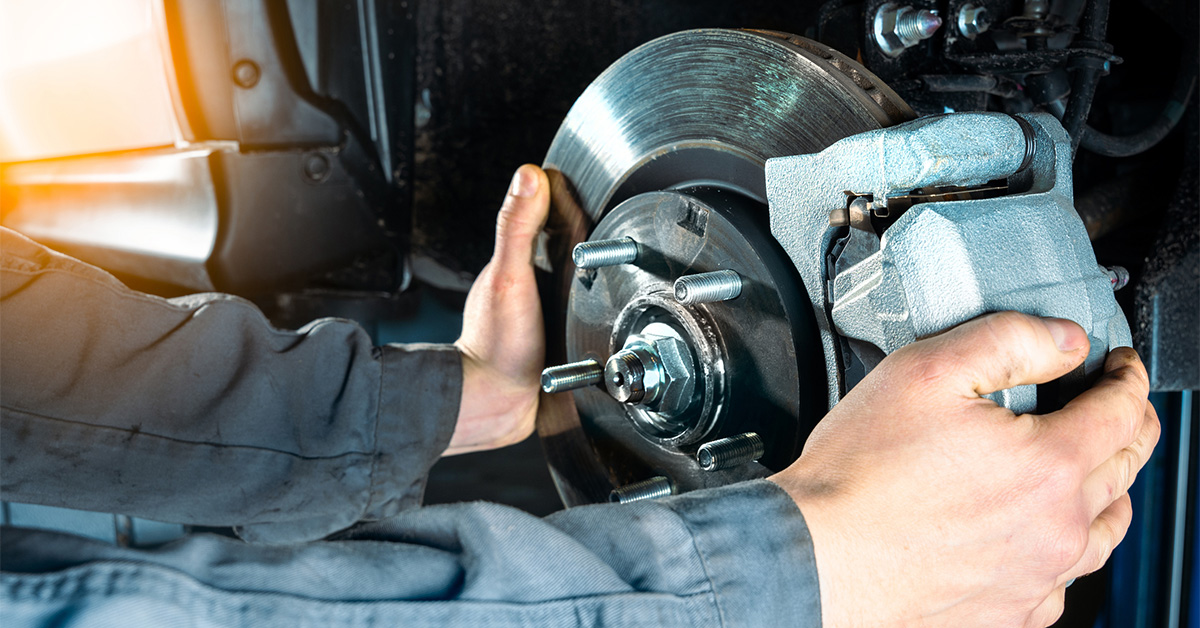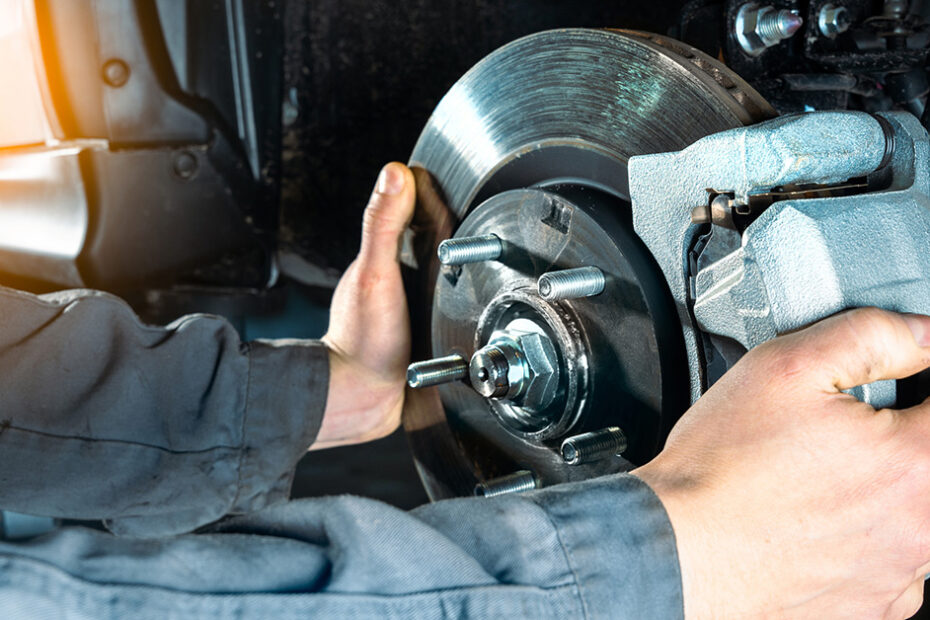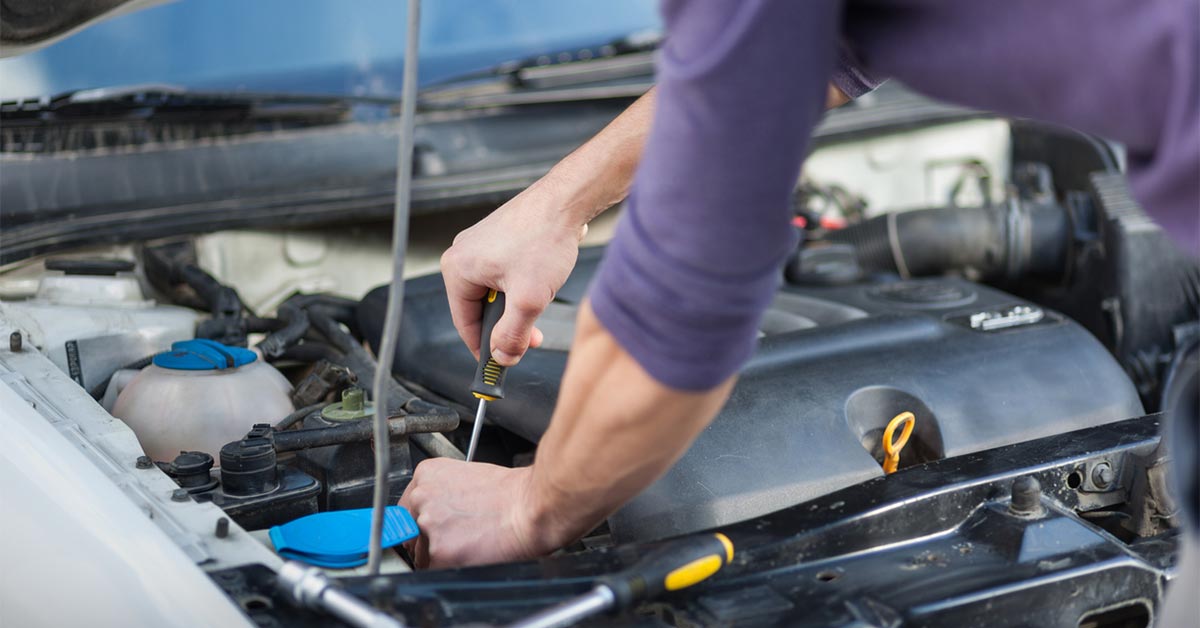If you’ve owned a car long enough, chances are you’ll one day need some form of critical maintenance to keep it functional. Out of all your vehicle’s features, your car brakes and braking system are some of the most essential features that keep you safe during each drive. Although some drivers may delay brake maintenance, doing so could put you in a dangerous position and limit your ability to stop effectively. AutoZone states that brakes can last anywhere from 25,000 to 70,000 miles, depending on your driving habits and frequency.
Not sure what warning signs to look for that indicate you need to replace your brakes? Here are five signs that you can use to determine if you need new brakes.
1) Audible Squealing
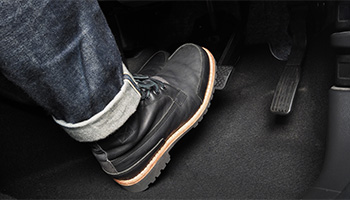
One of the first signs you’ll notice that indicates you need new brakes is a harsh squealing noise whenever you apply the brakes. Although the sound can be concerning, it doesn’t mean your brakes are about to fail at any minute. Instead, the noise is actually a “wear indicator” designed to alert you that it’s time to visit the auto shop for a look-over.
Today, most brake systems have a small metal indicator that produces a high-pitched noise when your brake pads are worn down to a specific thickness. If you hear this squealing noise frequently when braking, it’s best to have your car looked over by a professional. However, remember that only some brakes may come equipped with an indicator, so you should rely on something other than an audible warning alone.
In wet conditions, your brakes may cause a similar squealing sound to the brake pad indicator. If the sound disappears after a short time, the issue is likely due to moisture on the brake pads rather than the indicator itself.
2) Slow Responsiveness
Do you feel like your brakes aren’t as responsive as they should be? Does your car take slightly longer to come to a complete stop than it used to? If these scenarios sound familiar, then it’s likely that your brakes need some form of maintenance. Brake systems rely on brake fluid to properly stop your vehicle—without any fluid, your brakes won’t work.
If you experience slow responsiveness when braking, the issue could be with your brake pads or brake fluid. Either way, taking your vehicle in for an inspection is important.
3) Your Car Pulls to One Side
Although your brakes work together, they sometimes wear down at different rates. It is possible for one side to wear down faster than their counterparts. When this happens, your car may pull slightly to one side whenever you apply the brakes, which can be extremely dangerous. Not only can this lead to you losing control of your vehicle, but it will also further damage other parts if left unchecked.
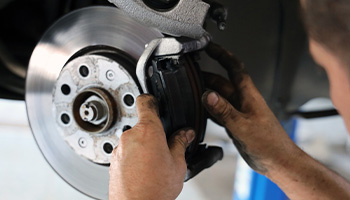
Although this can occur when there is a problem with your braking system, there are other potential reasons your vehicle can pull to one side. Possible issues include tire pressure, faulty wheel bearing, or a malfunctioning brake caliper. If you take your car to a mechanic and the problem involves your brakes, you should install two new sets instead of just replacing the most worn ones.
4. You Feel Vibrations When Applying the Brakes
Good brakes will bring a car to a consistent, smooth stop. Bad brakes, however, will cause the car to struggle a bit more to stop moving. If you feel vibrations when you apply your brakes, this could indicate that your brake pads or brake rotors are heavily damaged.
You should not ignore a vibrating brake pedal nor take it lightly. If you don’t fix the root of the problem, you’ll compromise your ability to stop your vehicle safely.
5. You Hear a Metallic Grinding Sound
If you never heard an initial screeching sound that indicates your brake pads are wearing down, it could transition into a deep, low sound of metal grinding together. Hearing this sound could mean your brakes are severely worn down and must be replaced ASAP. However, if it gets to this stage, you’ll likely need to replace your brake rotors as well since the sound comes from the bare metal of the pad grinding alongside the rotor. If left unchecked, the high heat due to friction could melt the metal together and cause your brakes to stick. At this point, your car is a severe driving risk and needs service attention immediately.
How Can I Make My Brakes Last Longer?
There is no set time for how long brakes can last. Multiple factors such as driving habits, city vs. highway travel, and braking patterns all influence the longevity of your brakes. According to Bridgestone Tire, brake pads generally last between 30,000 and 35,000 miles in heavy urban areas. In less stressful conditions, such as ongoing highway travel with light traffic, brakes could last up to 80,000 miles or more. Here are a few ways you can help extend the life of your brakes:
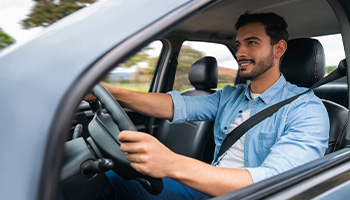
- Avoid riding the brake: Some drivers may have the habit of “riding the brake,” which means excessively using the brakes when braking isn’t completely necessary.
- Watch traffic carefully: If you’re a safe driver and maintain a safe distance from the car ahead of you, it will be easier to anticipate your stops, which will help you from having to apply your brakes quickly.
- Remove unnecessary weight from your car: The heavier your vehicle is, the more force it will take to stop your car completely. If you carry unnecessary weight in the trunk or top of your vehicle, consider swapping it out if brake lifespan is a concern.
- Coast when it’s safe to do so: If you can safely slow your car down by removing your foot from the gas, this could help extend the lifespan of your brakes by reducing the amount of braking you do.
Protect Your Car with Proper Car Insurance
If you get into an accident due to your brakes, you’ll need the right coverage to help alleviate the financial burden of dealing with repairs. If you only carry state-required liability insurance, you’ll only have coverage for damage you cause to another’s vehicle or property, not your car. To repair your car after an accident that you caused, you’ll need to carry collision insurance. At AIS, we work with a network of trusted insurance partners to help find your ideal balance of coverage and price. If you’d like to speak with an insurance specialist about how AIS can assist with your insurance needs, give us a call today at (888) 772-4247 or start your quote online.
The information in this article is obtained from various sources and is offered for educational purposes. Furthermore, it should not replace manuals or instructions provided by the manufacturer or the advice of a qualified professional. No warranty or appropriateness for a specific purpose is expressed or implied.
